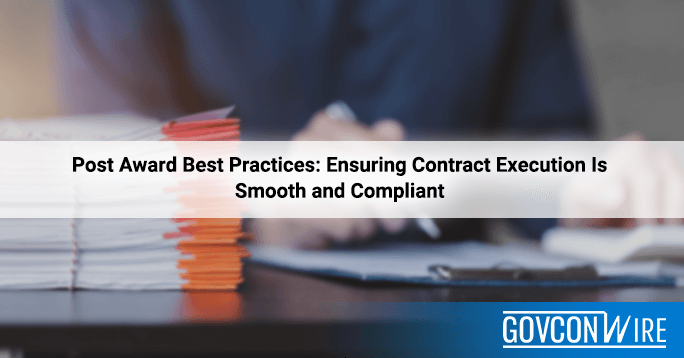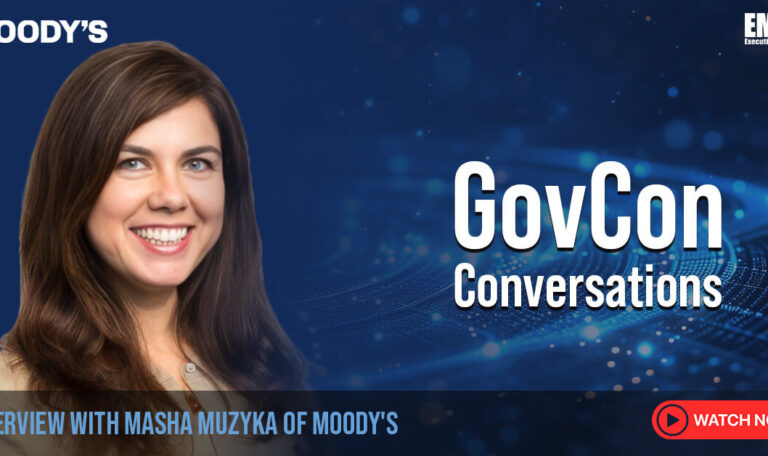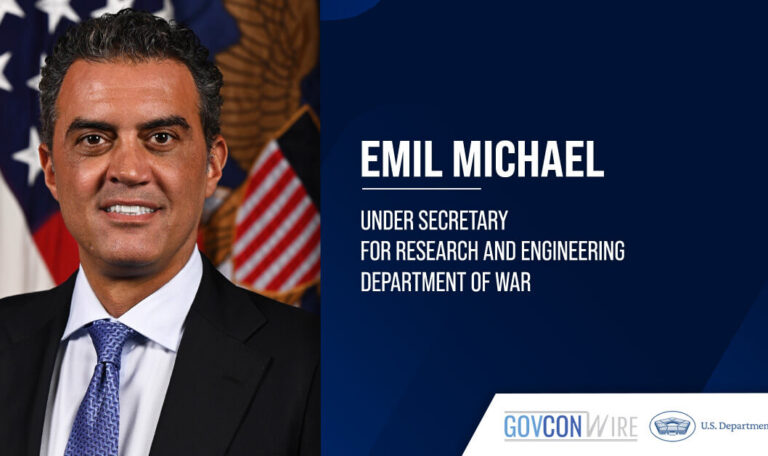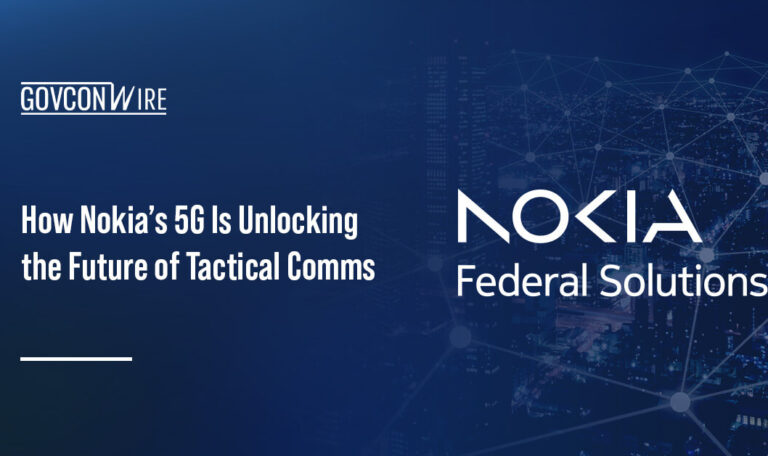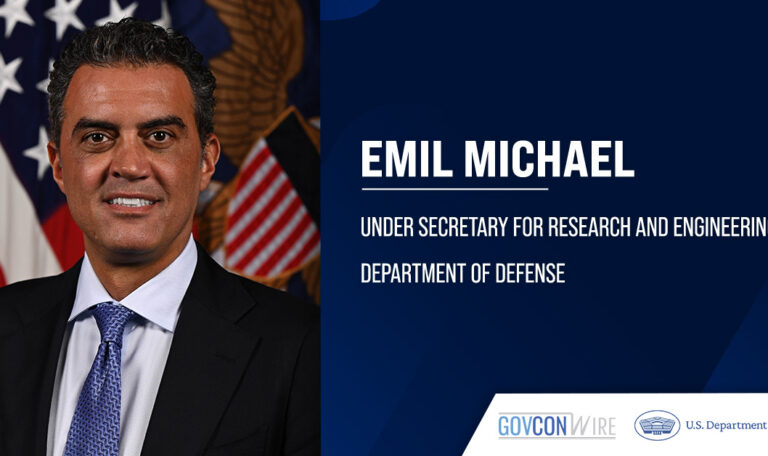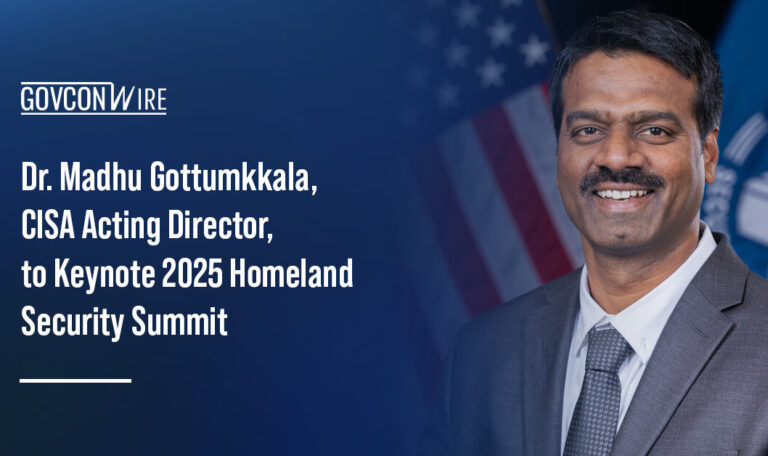Post-award best practices are key when it comes to contract management and contract execution. You’ll quickly realize that working with the government and supporting their projects can be more complex than dealing with commercial agreements.
The government operates within a web of stringent regulations, and you need to play by the rules. Signing the contract is just the beginning. Once that milestone is reached, it’s imperative that you diligently execute your commitments by implementing effective post-award contract management solutions.
What is Post-Contract Management Process and How Does it Help in Contract Execution?
Once suppliers win a contract, they move into the post-contract award stage. This is when they start delivering the goods or services agreed upon in the contract. A post-award contract management experience, it involves activities that ensure the terms and conditions are met. It includes overseeing compliance, handling contract amendments and changes, managing product dates, quality assurance, delivery schedules, and contract renewals, and evaluating the contractor’s performance.
Importance of Post-Award Contract Management

During the post-award phase, everything becomes dynamic due to uncertainties and the need for effective contract management. This phase ensures that you handle contract amendments right away. It also keeps you updated with the changes to meet all the requirements outlined in the agreement throughout the contract duration.
Below are some other reasons why post-award contract management is essential.
Builds relationships
Post-award contract management is important in managing ongoing relationships between contracting parties. It’s about maintaining communication between the supplier and the company to find suitable suppliers and build relationships. While effectively managing your business relationships is key to your organization’s success, few excel in contract management throughout the relationship cycle.
For example, if you have established a great working relationship with the finance office, it can help in the closeout process. The finance office may be able to provide a list of contracts where money might be lost without final settlement, so you can focus on those contracts and use quick closeout procedures to wrap things up efficiently.
Prevents revenue leakage
Once contracts are signed in most organizations, they typically end up in Gmail, One Drive, or a contract repository. They remain there until someone needs to review the agreement terms. Unfortunately, this setup often leads to missed important milestones, resulting in revenue leakage or strained relationships with vendors.
Post-award support addresses revenue leakage caused by faulty invoicing or inadequate change order management. These issues can lead to paying for the same service or product twice or failing to hold your partners accountable for their promised deliverables. Additionally, post-award support encompasses preventing catastrophic losses by actively avoiding regulatory pitfalls.
While managing contracts after they are signed requires time and resources, the investment can yield substantial benefits in increased profits and reduced losses. Effective contract management can also help minimize revenue leakage by improving invoicing and change-order practices and ensuring your business partners fulfill their commitments.
Increases competitiveness
Federal agencies rely on past performance evaluation (PPE) to assess an organization’s track record in fulfilling previous contracts before awarding new ones.
By implementing effective post-award contract management, you can save valuable time for your organization. It will also enhance the overall contract performance, giving you a competitive edge when responding to future solicitations.
Your main objective should be to deliver the expected value agreed upon during the contract award phase. However, if post-award contract management is neglected or delayed, it becomes difficult to track important milestones such as payment schedules, product delivery, and quality control. Failing to do so can negatively impact recompeting for contracts and jeopardize your ability to retain the current contract and its option periods.
Effective Post-Contract Management Practices

An efficient contract management solution helps throughout the three phases of the contract: pre-award, contract award, and post-award. Without it, your legal team and general counsel might make mistakes and lead to serious consequences for your company. Additionally, they could accidentally miss important amendments or overlook crucial details.
Hold a meeting
After signing the contract, the post-award meeting is crucial because it helps with effective contract management. You’ll need immediate communication on any changes, and there are usually time-sensitive deliverables right after you put pen to paper. Plus, your account teams need guidance on handling all the contract-related work.
Furthermore, the meeting ensures everyone’s on the same page: understanding the contract, the scope of work, and what the client expects. From there, you can discuss the relationship intent and how you’ll govern the contract as a team, which will clarify the roles and responsibilities of everyone on board.
You can address any misunderstandings or mistakes in the contract and client expectations. It is better to sort them out before they cause trouble and disputes. Finally, it helps you understand the systems and tools you might need to manage and store all your contract-related documents.
Track renewals and modifications
When renewing a contract, your organization should reflect on its progress, strategies, goals, and values in business arrangements. If your company has seen significant growth, you’ll have a stronger position to renegotiate the terms during renewal. To manage contract renewals effectively, keep the contract dates in one central location for easy tracking. Ensure you allocate enough time to review the contractual terms and discuss any necessary changes.
In some cases, modifications to government contracts may be required due to changing circumstances. However, any alterations to your business practices, workload, or pricing must be requested as modifications to the contract. Making changes during the post-award phase without contract modification can put your organization at fault and even lead to contract termination.
Some examples of modifications you should be prepared for include adding general clauses, executive orders, or new terms and conditions to the contract. It could also involve adding, removing, or replacing specific Contract Line-Item Numbers (CLINs) or extending, reducing, or modifying the existing Period of Performance (PoP).
Comply with the Contract
In government contracting, contractors face significant compliance costs due to the industry’s strict regulations. If contractors operate in multiple states or countries, those compliance costs can be even higher. It’s crucial to understand that breaching the terms of a contract has more consequences than just a tarnished reputation and legal troubles. You also risk losing your client.
So, it’s essential to adhere to the terms outlined in the contract as a best practice at this stage. When issuing a sub-award exceeding $700,000 under a government contract prime award, the Office of Sponsored Programs (OSP) must comply with Public Law 87-653, also known as the Truth in Negotiations Act (TINA).
Additional certifications and compliance requirements may be needed depending on the specific industry. For example, defense-related contracts may require compliance with ITAR (International Traffic in Arms Regulations).
Use automated contract management systems
In most organizations, a contract is often tucked away and forgotten once a contract is signed. There’s no way to track the contract’s performance, which can be a big problem. It exposes companies to compliance risks, leading to significant financial and reputational losses. However, with successful contract management and administration, this can be avoided.
A good contract management system adds value to the contract creation process from start to finish. It streamlines and standardizes the whole process after the contract is signed. This means efficiently managing obligations, expirations, and renewals. Plus, it helps you identify opportunities for savings and potential upsells or cross-sells.
You can make informed decisions with a better overview of how the contract is performing. Integrating an automated contract management service can save a ton of time and automate many tedious processes associated with contract administration. Instead of relying solely on paperwork, using contract management software makes it easier to monitor complex contracts.
FAQs
What is the National Contract Management Association?
The National Contract Management Association (NCMA) is a Virginia-based non-profit organization offering top-notch professional development and educational advancement. With over 20,000 members from public and private sectors, it serves as a thriving community for individuals seeking to enhance their skills and expand their knowledge in GovCon, contract management, procurement, acquisition, and public spending.
What is the importance of the contract administration process?
Contract administration encompasses the responsibilities of the government officials after awarding a contract. Its purpose is to assess the contractor’s performance in meeting the contract’s requirements and improve the chances of successful contract delivery. An effective contract administration can also minimize disputes between parties through clear and concise documentation of the contract terms.


